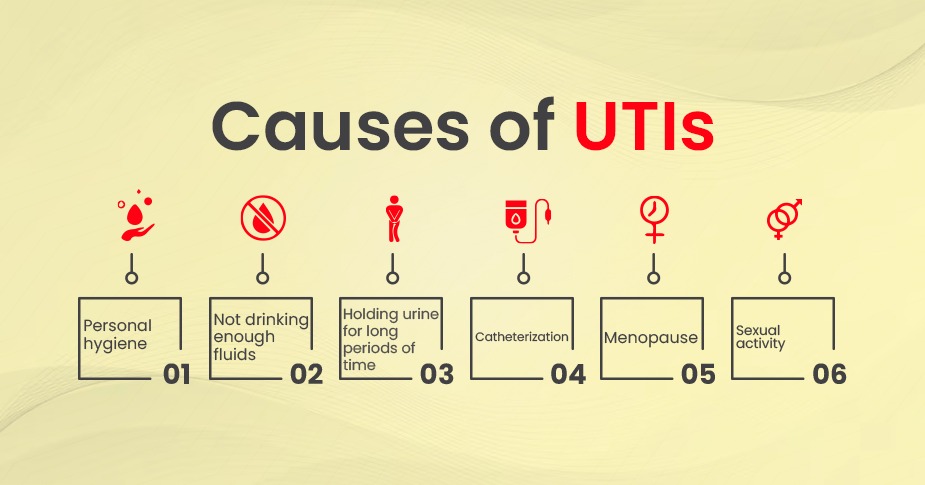Urinary Tract Infections (UTIs) are a common issue that impacts a large number of individuals globally, especially women. Although UTIs are commonly linked to poor hygiene or bacterial exposure, the importance of staying hydrated in preventing these infections is frequently underestimated. In this article, we will investigate the following question: can you get a uti from not drinking enough water?
What exactly are UTIs?
Urinary tract infections can impact various parts of the urinary system, such as the kidneys, ureters, bladder, and urethra. Bladder infections are
- the most common type of UTI,
- leading to symptoms such as frequent urination,
- burning sensation during urination, and
- pelvic pain.
The Role of Hydration in Urinary Tract Health
Exploring the Impact of Hydration on Urinary Tract Health
Staying well-hydrated is essential for supporting urinary tract health. Ensuring we stay properly hydrated can assist in eliminating toxins and bacteria from the urinary system. When the body is dehydrated, it can result in concentrated urine, creating an environment where bacteria can flourish and lead to possible infections.
Can Dehydration Solely Cause UTIs? 
Understanding that dehydration is not the only factor contributing to UTIs is crucial. Although it can elevate your risk, other factors also contribute, including:
- Sexual activity: Engaging in certain sexual activities may introduce bacteria into the urethra, which can raise the likelihood of UTIs.
- Medical conditions: Women have a higher susceptibility to UTIs because of their shorter urethra in comparison to men. Factors such as diabetes, kidney stones, and specific medications can also heighten the likelihood of UTIs.
Mechanisms Behind UTIs and Dehydration
When the body is dehydrated, it produces less urine, resulting in decreased urination frequency and more concentrated urine. This highly concentrated urine creates a perfect breeding ground for bacteria, raising the chances of developing UTIs. Moreover, a lack of hydration can weaken the immune system’s capacity to combat infections, making individuals more susceptible to UTIs.
Tips for Preventing UTIs through Hydration
Ensuring proper hydration is crucial for preventing UTIs. It is advised to consume a minimum of eight 8-ounce glasses of water daily, although personal requirements can differ depending on factors such as age, physical activity, and weather conditions. Moreover, including foods rich in water content, like fruits and vegetables, can help with staying hydrated.
Other Factors Contributing to UTIs
Dehydration plays a crucial role in increasing the risk of UTIs, but other factors can also play a part in their development. Improper hygiene habits, like wiping back to front after using the restroom, may introduce bacteria into the urinary tract. Moreover, engaging in sexual activity, specific medical conditions, and weakened immune systems can heighten the risk of UTIs.
What are the Causes of UTIs?

Dehydration can heighten the chances of UTIs, but it’s not the sole factor. Here are a few additional typical triggers:
- Most recent sexual activity
- Issues with the structure of the urinary system
- Some medical conditions, such as diabetes,
- Compromised immune system
- Proper wiping techniques (avoid wiping from back to front to prevent the spread of bacteria)
- Opting for aggressive vaginal cleansers that may upset the natural bacteria balance in the vagina and delay urination for extended periods
- Opting for snug attire that retains moisture
- Employing a diaphragm for contraception
- Menopause can lead to thinning of the vaginal tissues due to hormonal changes.
How Much Water Do I Need to Drink to Flush Out a UTI?
Ensuring you stay well-hydrated is essential in preventing UTIs. If you have frequent or recurring UTIs, it’s wise to seek guidance from a healthcare provider. They are skilled at identifying any underlying conditions and suggesting the most suitable treatment plan. Staying hydrated by drinking enough fluids can assist in eliminating bacteria from the urinary tract, although it may not always completely treat a current UTI. Antibiotics are usually required to address an active infection.
Finally, it should be noted that sustaining urinary tract health and avoiding UTIs depend heavily on maintaining hydration. Drinking enough water and practicing excellent hygiene can lower the incidence of these painful diseases. Therefore, make sure to make staying hydrated a top priority; your urinary system will be grateful to you.



Leave a Reply